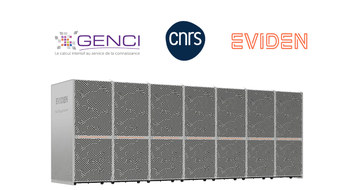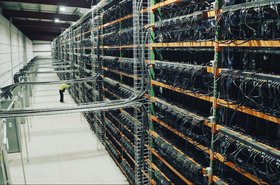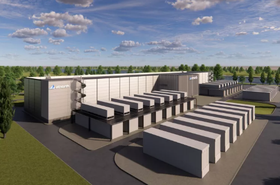France’s HPC agency GENCI and its National Center for Scientific Research (CNRS) have selected Eviden to upgrade the capacity of its Jean Zay supercomputer.
Atos-owned Eviden will supply Nvidia GPUs to increase the peak computing power from 36.85 petaflops to 125.9 petaflops.
The companies say computing capacity will be multiplied by 3.5 in double precision for high-performance computing and by 13 if reduced or mixed precision is used - for example, in artificial intelligence.
IDRIS, the computing center at CNRS, says the extension will allow it to carry out numerical simulations using high-performance computing and train generative AI models. IDRIS uses waste heat from the supercomputer to supply heat to the Paris-Saclay urban campus.
The project has benefited from France 2030 funding, the national investment plan. Last year, at the Vivatech conference, President Emmanuel Macron pledged to support the development of sovereign AI, particularly generative AI.
As a result, GENCI has been awarded €40m ($43.2m) for the project and an additional €10m ($10.8m) to strengthen the human resources of the French National Artificial Intelligence Research Program (PNRIA).
Eviden says Jean Zay will now be equipped with 1,456 Nvidia H100 GPUs, in addition to the existing 416 A100s and 1,832 V100s from the previous configuration.
The upgrade will include 14 Eviden BullSequana XH3000 to provide an increased power supply. The compute racks feature 364 dual-processor Intel Sapphire Rapids 48-core servers, 512GB of memory, and four Nvidia H100 80GB SXM5 GPUs, interconnected by four high-speed Nvidia ConnectX-7 400Gb/s Infiniband network adapters.
The storage environment is also set to be overhauled with a first level of 4.3PB flash technology and a second level of 39PB fast disk technology, both under Lustre and supplied by DDN.
GENCI's CEO Phillipe Lavocat said that the funding is equivalent to what has already been invested in the entire current Jean Zay machine. "With more than 1,000 AI projects already using this supercomputer’s capabilities in 2023, the new sovereign infrastructure will be a key factor in fostering major breakthroughs in academic and industrial research,” he added.
The H100 GPU-based partition of Jean Zay will be installed in April by Eviden and will be fully operational in the summer of 2024.
France’s supercomputer was named after a French politician imprisoned by the Vichy government during World War II. It was first deployed in 2019.
Eviden earlier this year secured the contract to build a modular data center to host the EuroHPC-funded Jupiter supercomputer.






